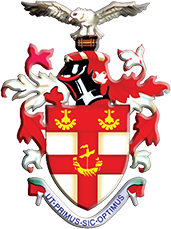Ophthalmology
Sydney Hospital and Sydney Eye Hospital is a Centre of Excellence, providing world-class specialist eye services.
Sydney Eye Hospital Outpatient Department is a referral centre for general and specialist ophthalmic services for both adults and children. These services are provided by specialist ophthalmic doctors and nurses.
For the Eye Outpatient Department information, click this link.
Patients may be referred to this department by other ophthalmologists, optometrists, doctors and specialists from other hospitals.
Services provided by the department are:
- Cataract
- Ocular plastic
- Glaucoma
- Vitreo retinal
- Medical retina
- Neuro ophthalmology
- Squint
- Cornea
- Uveitis
If you are having elective surgery, information can be found by clicking this link.
Sydney Hospital and Sydney Eye Hospital Emergency Department provides emergency services to the general public for eye trauma and is open 24 hours a day, 365 days a year. You may also be referred to the emergency department by another ophthalmologist or doctor for such conditions sudden loss of vision, corneal ulcers and retinal detachment.
For any eye emergencies requiring urgent treatment, please go to the Emergency Department page by clicking this link.
- You will first see a clerk to complete paperwork. Please make sure your contact details are correct
- You will then see a nurse who will check your eyesight and assess what further tests you may need
- You may see either an orthoptist, or a doctor, depending on what you need
- Consultant - a senior doctor who has specialised in Ophthalmology
- Fellow - a doctor who is undertaking specialist training within a specific field within Ophthalmology. some examples include Uveititis, Retina, Glaucoma, Cornea and Ocularplastics
- Registrar - a doctor who is undertaking general training in Ophthalmology
Glaucoma is a disease that damages the connection between the eye and brain (optic nerve). In most cases there is slow loss of peripheral (outside) vision, but blindness can occur if the condition is ignored or not properly treated. . Sometimes glaucoma may be more aggressive, requiring urgent treatment. All currently available glaucoma treatments, including eye drops, laser, and surgery, work by reducing the pressure of the eye. This halts or slows the rate of glaucoma, but cannot reverse damage that has already occurred.
Glaucoma surgery is used to reduce the pressure of your eye, but it does not improve your vision. Sometimes your vision will seem more blurry for some weeks after the surgery. In most cases this improves with time or needs a change in your glasses prescription. It is also very common for your eye to feel irritable or scratchy for a while.
Glaucoma surgery is always performed by a fully qualified doctor.
Please discuss with your surgeon if you are on medication to thin your blood, as this may need to be stopped before surgery. On the day of surgery you should continue to take your usual eye pressure lowering treatment. You will be directed by your surgeon on whether to continue or to stop your usual glaucoma treatment after the surgery. New eye drops are prescribed after the surgery to reduce the risk of infection and inflammation (swelling).
Initially you may be asked to take one of these drops every 1-2 hours whilst awake. Drops may be required for a number of months after surgery, but at a reduced frequency.
Glaucoma surgery is prioritised by your treating consultant and depends on the severity of your case.
The Neuro-ophthalmology clinic looks after vision and eye movement problems that come from the brain rather than the eyes.This includes diseases of the optic nerve, changes in the pupils, and damage to brain structures like the visual cortex.
Common conditions seen by neuro-ophthalmologists are diseases affecting the optic nerves such as idiopathic intracranial hypertension, ischaemic optic neuropathy and optic neuritis; as well as damage to other structures of the brain from stroke, trauma, or tumours.
When you come to the neuro-ophthalmology clinic please bring:
- your referal
- your glasses
- a list of your current medications
- any MRI or CT scans you have had
- copies of any blood tests your referring doctor has ordered
Information sheets for eye medicines
Eye Conditions
Retinal detachment information
Instruction Sheets
How to instil eye drops and ointment - pictorial
Eye removal information leaflet
Cataract Surgery Information Sheets
The Overseas Fellows training at Sydney Hospital and Sydney Eye Hospital are supported by the Sydney Eye Hospital Foundation.
